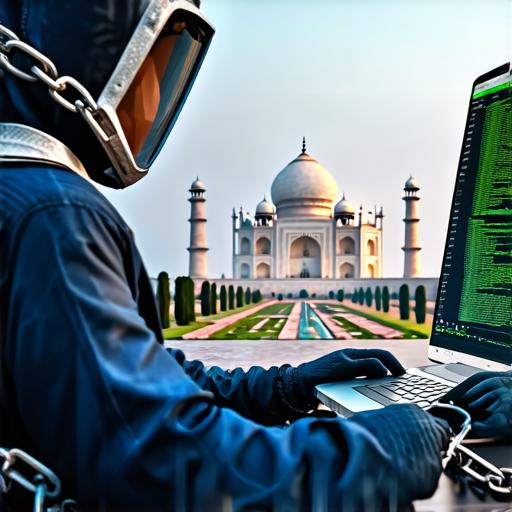
Exploring Opportunities in Blockchain Development Careers Across India
1. Financial Services
The financial services industry is one of the most promising sectors for blockchain technology in India. Blockchain technology can help banks and other financial institutions to improve their efficiency, reduce costs, and enhance security. Some of the use cases for blockchain in the financial sector include cross-border payments, trade finance, and supply chain management.
For example, Paytm, one of India’s leading mobile wallet companies, has already implemented a blockchain-based payment system to enable faster and more secure transactions. Similarly, banks like ICICI Bank and HDFC Bank are also exploring the use of blockchain technology for various financial services.
In addition, blockchain-based platforms like Ripple and Stellar are being used by financial institutions in India to facilitate cross-border payments.
2. Healthcare
The healthcare industry is another sector that can benefit from blockchain technology in India. Blockchain technology can help healthcare providers to improve patient privacy, reduce fraud, and enhance interoperability between different systems. Some of the use cases for blockchain in healthcare include secure data sharing, medical record management, and drug supply chain management.
For instance, MediLedger is a blockchain-based platform that enables pharmaceutical companies to track drugs from manufacturer to patient. This helps to reduce counterfeit drugs and ensure that patients receive authentic medications. In addition, the use of blockchain in healthcare can also improve data privacy and security, as well as interoperability between different systems.
Blockchain technology is also being used in India to store medical records securely and share them with authorized healthcare providers.
3. Supply Chain Management
Supply chain management is another sector where blockchain technology can provide significant benefits in India. Blockchain technology can help companies to track products from origin to destination, reduce fraud, and improve transparency. Some of the use cases for blockchain in supply chain management include tracking raw materials, managing inventory, and verifying product authenticity.
For example, Walmart has implemented a blockchain-based system to track the origin of food products in its stores. This helps to reduce food waste and ensure that customers are getting fresh and safe products. Similarly, companies like Maersk and IBM have also implemented blockchain-based systems for supply chain management.

In addition, blockchain technology is being used in India to track the movement of goods across different stages of the supply chain, from raw materials to finished products.
4. E-Voting
E-voting is another area where blockchain technology can provide significant benefits in India. Blockchain technology can help to ensure that elections are conducted securely and transparently, and that the results cannot be tampered with. Some of the use cases for blockchain in e-voting include voter authentication, vote counting, and result publication.
For instance, West Virginia has already implemented a blockchain-based e-voting system for its 2018 mid-term elections. This system uses a combination of blockchain technology and biometric verification to ensure that only eligible voters can cast their ballots. Similarly, other countries like Estonia and Switzerland have also implemented blockchain-based e-voting systems.
In addition, blockchain technology is being used in India to create secure and transparent voting systems for municipal elections.
FAQs
What are the job opportunities in blockchain development?
There are numerous job opportunities in blockchain development across various sectors such as finance, healthcare, supply chain management, and e-voting. Some of the common roles in blockchain development include software developers, security experts, and project managers. In addition, there is also a growing demand for blockchain architects, data scientists, and compliance specialists.
What are the skills required for blockchain development?
Blockchain development requires a combination of technical and soft skills. Some of the essential technical skills for blockchain development include programming languages like Solidity, Java, Python, and JavaScript. In addition, knowledge of blockchain platforms like Ethereum, Hyperledger, and Corda is also required. Soft skills like problem-solving, communication, and teamwork are also important for blockchain development.
립>What are the challenges faced by blockchain development in India?
Some of the challenges faced by blockchain development in India include regulatory uncertainty, lack of standardization, and limited talent pool. In addition, there is also a lack of awareness about blockchain technology among businesses and individuals. To overcome these challenges, it is essential to collaborate with regulators, industry associations, and educational institutions to promote blockchain adoption and develop the necessary skills and knowledge.
What are the potential benefits of blockchain development in India?
Blockchain development has immense potential to transform various sectors in India, including finance, healthcare, supply chain management, and e-voting. Some of the potential benefits of blockchain development in India include increased efficiency, reduced costs, enhanced security, and improved transparency. In addition, blockchain technology can also help to create new business models and revenue streams.



